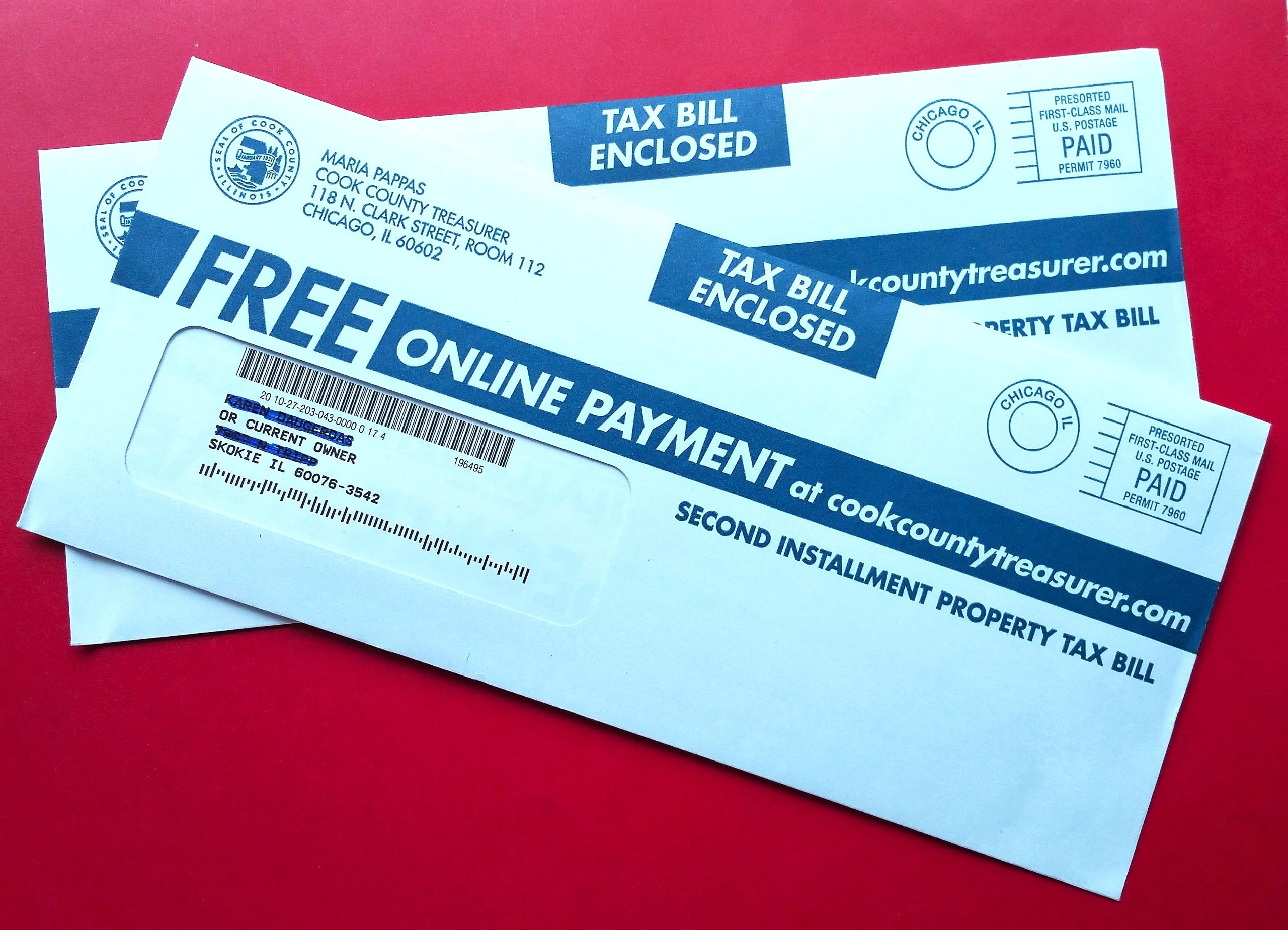Selling Your Home in the Fall: A Quick Guide

Thinking about selling but worried fall is “off-season”? Don’t be. If you’re juggling careers, growing families, or big life moves, fall can actually be one of the smartest times to sell. Buyers this time of year tend to be decisive. Fewer listings mean less competition, and the cozy, lived-in feel of autumn helps people picture their next chapter.
Why fall works:
- Buyers shopping in fall often have concrete deadlines — job relocation, getting closer to family before the holidays, or wanting to settle before year-end. That means you’re more likely to get offers from people ready to move.
- There is less competition because many homeowners wait until spring. Listing in fall often means fewer nearby comparisons and a better chance to stand out.
- Autumn staging highlights comfort, storage, and functional living spaces — things buyers in their 30s and 40s care about (kids, pets, home office).
- Timing for life transitions: Closing before year-end can help with tax planning, school schedules, or starting a new job in January.
Pricing and marketing — what matters now
- Be sure to listen to your agent and price to sell, not to test. Accurate pricing draws motivated buyers fast. Work with an agent who understands local trends and targets buyers in your age group. As a Pricing Advisor, I run multiple reports to analyze the market & current sales to price your home accurately.
- Highlight move-in readiness: Buyers value convenience. Promote recent updates, warranties, and low-maintenance features (appliances, HVAC, smart home systems). I often recommend that my sellers include a Home Warranty to sweeten the deal, especially if the house is a few decades old.
- Use lifestyle photos and virtual tours: Show the spaces people care about — a functional kitchen, a finished basement that doubles as a playroom or home gym, a back yard that fits weekend BBQs.
- Be mobile-friendly, since many buyers search listings on phones. Make sure your listing looks great on mobile and includes short video walkthroughs or a 60–90 second home tour.
Staging tips that resonate with buyers
- Declutter for real life: Pack away personal items but leave subtle lifestyle cues — a pair of kid’s sneakers neatly stored, a laptop in a tidy home office, or a clean play area. It helps buyers envision living there.
- Show smart storage: Buyers want to know where things go. Highlight closets, garage storage, pantry organization, and mudroom functionality.
- Keep decor modern and warm: Neutral but current finishes, natural textures, and a few seasonal touches (a tasteful fall wreath, warm throw pillows) are inviting without being dated.
- Light, bright, and flexible: Layer lighting for evening showings and stage rooms to be multi-use (guest room that’s also an office).
Quick fixes that speed offers
- Prioritize small, visible repairs: Fix sticky doors, loose cabinet handles, leaking faucets, and cracked grout. These are low-cost but increase buyer confidence.
- Tune up the HVAC and water heater: Provide service receipts or recent maintenance to reassure buyers they won’t face surprises.
- Deep clean and depersonalize: A spotless, neutral space speeds decisions. Consider professional cleaners if your schedule is tight.
- Consider a pre-listing inspection if you’ll be away during showings or want to prevent back-and-forth with buyers.
- Be pragmatic on contingencies: You don’t have to accept risky offers, but being open to reasonable requests (flexible closing dates, minor seller credits) can earn faster commitments.
- Coordinate moving logistics early: If you’re juggling a job and kids, arrange movers and storage ahead of time — being organized can speed the process once an offer is accepted.
Common fall seller mistakes (and how to avoid them)
- Overdoing seasonal decor: One or two tasteful fall touches are fine; avoid a full holiday makeover that distracts buyers.
- Letting curb appeal slide: Wet leaves, cluttered gutters, and unshoveled walkways are turn-offs. Keep the exterior tidy and safe.
- Ignoring remote buyer needs: Many buyers rely on virtual tours and detailed listing info — don’t skimp on photos or floor plans.
Final takeaways If you’re ready to sell, fall is a practical, potentially advantageous time. Buyers are motivated, competition is lower, and the season naturally highlights the cozy, functional features your peers care about. Focus on realistic pricing, targeted marketing, quick fixes, and staging that showcases real-life living. With a few smart moves, you can get your home sold fast — and return your focus to career, family, or your next adventure.
For all your real estate questions, call Karen Daugerdas, Coldwell Banker REALTOR, Pricing Advisor, Seniors’ Specialist & Buyer’s Representative, 847.494.1102, karen.daugerdas@cbrealty.com.
Cook County Delays in Property Tax Exemptions & Certificates of Error

Due to a countywide technology upgrade, both the second property tax bill of the year, as well as processing of Certificates of Error applications are temporarily on hold. The county anticipates that the new bills will be available before the end of 2025 and no applications for errors or refunds will be issued at this time. Applications can still be filed, but they will be processed at a later date.
When your application is processed, you will receive an email notification with the result. You can also check the status of your application by logging into your account and clicking on “My Filings” on the top of the Page.
Property tax exemptions are savings that contribute to lowering a homeowner’s property tax bill. The most common is the Homeowner Exemption, which saves a Cook County property owner an average of approximately $950 dollars each year.
To determine which exemptions are currently being applied, you can review your Property Details, and then review the Exemption History and Status section of the Cook County website to determine which exemptions were received.
New homeowners and returning applicants can apply online.
If a homeowner believes they are entitled to exemptions in previous tax years, file a Certificate of Error application.
Homeowner Exemption
Most homeowners are eligible for this exemption if they own and occupy the property as their principal place of residence. Once this exemption is applied, the Assessor’s Office auto-renews it for you each year. This exemption provides savings by reducing the equalized assessed value of an eligible property.
This exemption automatically renews each year.
Missing Exemptions: Redeem savings for tax years 2024, 2023, 2022, 2021, and 2020 with a Certificate of Error.
Senior Exemption
Most senior homeowners are eligible for this exemption if they are 65 years of age or older and own and occupy their property as their principal place of residence. Once this exemption is applied, the Assessor’s Office automatically renews it for you each year. A Senior Exemption provides property tax savings by reducing the equalized assessed value of an eligible property.
This exemption automatically renews each year.
Missing Exemptions: Redeem savings for tax years 2024, 2023, 2022, 2021, and 2020.
Senior Freeze Low-Income Senior Exemption
Most homeowners are eligible for this exemption if they meet the requirements for the Senior Exemption and have a total household annual income of $65,000 or less in the calendar year. This exemption provides significant savings by “freezing” the equalized assessed value of an eligible property.
This exemption must be filed annually.
Missing Exemptions: Redeem savings for tax years 2024, 2023, 2022, 2021, and 2020.
Persons with Disabilities Exemption
Homeowners eligible for this exemption this year must be disabled or become disabled during the 2023 tax year. This exemption provides property tax savings with an annual reduction in the equalized assessed value of a property. This exemption will automatically renew due to new state legislation.
Missing Exemptions: Redeem savings for tax years 2024, 2023, 2022, 2021, and 2020.
Returning Veterans Exemption
Provides veterans returning from active duty in armed conflict with a reduction in the equalized assessed value of their property – for each taxable year in which they return. This exemption must be filed annually. This exemption must be filed annually.
Missing Exemptions: Redeem savings for tax years 2024, 2023, 2022, 2021, and 2020.
Veterans with Disabilities Exemption
Provides veterans with a service-connected disability as certified by the U.S. Department of Veteran Affairs with a reduction in the equalized assessed value (EAV) of their property. The amounts of those EAV deductions depend on the level of disability. This exemption must be filed annually.
Missing Exemptions: Redeem savings for tax years 2024, 2023, 2022, 2021, and 2020.
NEW: WWII Exemption
Beginning in tax year 2024, legislation passed that allows veterans who were members of the United States Armed Forces during World War II regardless of their level of disability rating to receive property tax savings. The term “World War II” means the period beginning on December 7, 1941, and ending on December 31, 1946. If any of the veteran’s service was performed during this time frame, the veteran is considered a World War II veteran.
This exemption will automatically renew.
Missing Exemptions: Redeem savings for tax years 2024.
Long-Time Homeowner Exemption
Only 2% of homeowners in Cook County qualify for this exemption. This exemption provides homeowners with an expanded Homeowner Exemption with no maximum exemption amount. In addition to meeting income and residency requirements, applicants must also have a significant assessment increase that exceeds the maximum amounts set by the state legislature. Applications will be mailed directly to potentially eligible homeowners. This exemption must be filed annually.
Homeowners can now apply for a 2024 Certificate of Error.

Allows homeowners to add improvements to their home that add to its value (for example, by increasing the building’s square footage, or repairing after structural flood damage) without being taxed on up to $75,000 of the added value for up to four years.
This exemption lasts up to four years. No application is required, since Cook County automatically applies this exemption to eligible properties.
*Please Note: Equalized Assessed Value (EAV) is not the amount of your taxes. The EAV is the taxed value of the property. A reduction in EAV is not the dollar amount reduction on the tax bill. Each property’s tax bill is affected by its EAV and its local tax rate that year.
Missing exemptions from prior tax years?
The Certificate of Error process allows homeowners to redeem missing exemptions. Homeowners can file for past exemptions for tax years 2023, 2022, 2021, and 2020 when they open it up to filing again, following the computer technology upgrade.
Have a real estate question? Call Karen Daugerdas, your family Coldwell Banker Real Estate Broker at 847.494.1102, karen.daugerdas@cbrealty.com.
Selling a loved one’s home? What to do, and NOT do!

Selling your parent’s home or that of a loved one  can become a battleground between family members when practical decisions about pricing, renovations & profit sharing collide with emotional attachments and family dynamics. It can turn a simple real estate sale into a battle of trying to sell the home & salvage relationships.
can become a battleground between family members when practical decisions about pricing, renovations & profit sharing collide with emotional attachments and family dynamics. It can turn a simple real estate sale into a battle of trying to sell the home & salvage relationships.
First, set up who does what: Some family members may have different financial interests, timelines & preferences in the sale of the family home. Clear decision-making processes need to be established to make certain everyone feels heard.
A key to managing conflict with siblings & other family members is communicating clearly. Actively listen, let viewpoints be expressed & clarify “Does that make sense to everyone?”.
Put it in writing. It may seem unnecessary, but people hear things differently. To avoid selective hearing & misunderstandings―or arguments between family members, make sure all the decisions are written down. This includes the listing information, sales price, marketing, timing, distribution of proceeds and more. Follow up the conversations with emails the recap what was said & what next steps are.
Most family members share a common goal when it comes to selling the family home. They want a fair price, for the process to be handled professionally & successfully & for everyone to be heard.
If conflict becomes too extreme, take a break. This can help to reset the process, allowing everyone to regroup & refocus to move forward. Make plans to return to the process when everyone has cooled down & is ready.
Some common mistakes to avoid:
- Setting the price too high
- Selling “As-Is”
- Not eliminating clutter
- Overlooking repairs
- Trying to “hide” problems
- Cutting costs on marketing, advertising & photography
- Being unwilling to negotiate
- Letting emotions rule
If you have questions about selling real estate for a loved one, contact a Seniors’ Real Estate Specialist (SRES®), like Karen Daugerdas, your local Coldwell Banker REALTOR®, 847.494.1102, karen.daugerdas@cbrealty.com.
Navigating Life’s Next Chapter: Helping Seniors Sell Their Homes with Care & Confidence

Karen Daugerdas, Coldwell Banker REALTOR® & Seniors’ Real Estate Specialist®
Selling a home is always a significant decision. But when it comes to seniors, it’s more than just a real estate transaction. It’s about closing one chapter & carefully, compassionately beginning the next.
Most seniors make major real estate decisions between the ages of 72 & 74. At this stage, many are still independent & actively planning for the future, yet they’re also keenly aware of the realities that come with aging. It’s a time when having the right support system—both emotionally & professionally—can make all the difference.
As a Coldwell Banker REALTOR® & Seniors Real Estate Specialist® (SRES®), I understand the unique challenges older adults & their families face. The process of downsizing, transitioning to assisted or independent living, & navigating healthcare & financial options can be overwhelming. For many families, this shift comes with uncertainty, emotional strain, & a long to-do list that’s difficult to tackle alone.
You might be wondering:
- Where do we even begin?
- What are the best living arrangements for my parent’s current & future needs?
- Can we afford the care they require now & in the future?
- How do we begin sorting, packing, & moving decades of memories?
- What resources are available to help with Medicaid, Veterans benefits, or senior housing programs?
These aren’t simple questions—& there’s no one-size-fits-all answer. That’s why I don’t just help seniors sell their homes. I work alongside a trusted network of moving professionals, eldercare workers, financial & legal advisors to provide your family with a comprehensive, compassionate plan. As a former Project Manager, I help you every step of the way, from building your team to creating a program & a timeline, to listing the home & ensuring a smooth transition into the next phase of life. I’m here to guide you through each step with patience & expertise.
If you’re helping a loved one navigate this life-changing process, know that you don’t have to—and you shouldn’t—do it alone. Whether you’re just starting to consider the options or you’re in the thick of decision-making, I’m here to lighten the load.
Let’s talk—confidentially & without pressure—about how I can support you & your family during this important transition.
Karen Daugerdas, Coldwell Banker REALTOR® & Seniors’ Real Estate Specialist®
📞 Call/Text: 847-494-1102
📧 Email: karen.daugerdas@cbrealty.com
Senior Citizen Real Estate Tax Deferral Program – More than a Senior Discount

There are growing concerns that increases in property tax bills due to recent re-evaluations are pushing senior citizens to leave their homes.
Some seniors take the Senior Exemption, which lowers their property tax based on reaching age 65 and above. There is also The Senior Freeze, for eligible senior homeowners whose household income is no higher than $65,000 per year, including all residents of the home.
But what do those seniors in the middle do? They may be above the $65,000, even by $1, and can’t afford the new property tax based on the new re-evaluations of their home value. There is one additional choice – a Senior Tax Deferral.
In Illinois, this program allows qualified seniors to defer a maximum of $7,500 in property taxes per tax year (including 1st and 2nd installments) on their primary home. This is a loan, not a discount, from the State of Illinois and is paid when the home is sold, or upon the death of the owners.
The deferral allows property owners aged 65 or older to “borrow” money from the state to cover their property taxes.
For some, this can make the difference in staying in their home, falling behind on their taxes or having to sell.
The requirements for the program are:
- Be 65 years of age or older on June 1 of the year the application is filed.
- Have a combined household income of $65,000 or less.
- Have lived in the home for the past 3 years.
- Have no overdue property taxes or pending special assessments.
- Maintain adequate fire or accident insurance.
You may defer up to $7,500, with an interest rate 3%. If the taxes are greater, the owner is still responsible for balance. It is the owner/taxpayer’s responsibility to pay the remaining amount to the Cook County Treasurer’s Office & late payments are assessed at an interest of 0.75% per month until the tax is paid in full.
Taxes must be re-paid immediately upon the sale or transfer of the property, or within one year after death.
What about your Mortgage?
Although written approval from your mortgage lender is not required, seniors should notify their mortgage lender of their intent so they can confirm that participation in this program will not violate any terms of the mortgage agreement or any “reverse-mortgage” agreement.
What if my property is in a Trust?
- The only trust that is allowed for this deferral is an Illinois Land Trust with the senior and their spouse as the sole beneficiary(s).
- The Illinois Land Trust handles ownership. This is similar to a revocable living trust. The title is held by a trustee while the senior/owners retain the ability to enjoy all the rights and responsibilities of owning the property.
- When property is placed into a land trust, the interest is essentially converted to personal property. The benefits of that characterization are that the property becomes simpler to manage and convey than an interest in real property.
Applications for the fiscal year must be submitted by March. Per state law, there are no time extensions OR Certificates of Error for the deferment.
At cookcountytreasurer.com, under the “Seniors” tab, seniors can find information about the program, a link to a downloadable brochure and an application that can be printed. In addition, the Cook County Treasurer’s Office has videos in English, Spanish, and Polish on the website and social media platforms.
If you have exhausted other resources & exemptions, the deferment may be the best alternative to staying or leaving your home.
For more real estate questions, contact Karen Daugerdas, Coldwell Banker REALTOR & Seniors’ Real Estate Specialist at 847.494.1102 or karen.daugerdas@cbrealty.com.

Is America’s Housing Market Failing Older Adults?

The US population is aging. Within the next decade, older adults will outnumber children for the first time in American history. As Americans live longer, their housing needs will change, but our current housing market is ill prepared for this demographic shift, according to Linna Zhu and Amalie Zinn of Urban Wire/Institute.
Today, senior households—many of whom are on fixed incomes—are facing a combined crisis of housing affordability, accessibility, and availability. As the country’s population ages and without action by policymakers, the consequences will be severe.
Over the past two decades, the number of senior households considered severely cost burdened—those spending more than half their income on housing—has nearly doubled, rising from 5.2 million to nearly 11.7 million, according to American Community Survey data. And the share of severely cost–burdened senior households has increased. In 2000, 11.5 percent of households headed by someone 50 or older were severely cost burdened. By 2020, the share increased to more than 16 percent.
Housing cost burdens are driven not only by one’s rent or mortgage payments, but by the cost of utilities, home insurance, property taxes (PDF), maintenance, and other fees.
Some demographic groups are more affected than others. Renter households are more likely than owners to be cost burdened at all ages. Older seniors, those 75 and older, are more likely to be cost burdened than younger seniors. Other research finds that rising insurance premiums have also made senior living communities more expensive.
According to the Urban Institute analysis of 2000–23 American Community Survey, households are severely cost burdened if they spend more than 50% of their income on housing costs.
Unlike younger adults, who can change their spending in response to rising cost burdens, seniors, especially those on fixed incomes, have less flexibility. For older adults facing increased or unexpected housing costs, limited budgeting alternatives can lead to homelessness. Between 2019 and 2022, the share of older adults experiencing homelessness increased 37%.
Survey data suggest that most older adults want to remain in their current homes and communities as they age. But affordability and accessibility present challenges.
According to the latest data from the American Community Survey, more than 75% of senior households live alone or with only one other person, yet 60% of these households live in homes with at least three bedrooms. These homes may not only be too big—they might be too old or in poor condition. Nearly half of large homes rented and owned by seniors were built before 1980 and might require serious renovation or modification.
The Urban Institute analysis of 2020 Health and Retirement Study noted that a household is considered lacking the financial assets to modify their home if their financial assets are below the median out-of-pocket expenses paid for accessibility modifications by other seniors of the same tenure.
According to data from the latest Health and Retirement Study, 34% of households headed by someone older than 50 lack the financial resources to cover the median out-of-pocket expenditures on home modifications. Renters in particular are more likely to lack the resources for renovations, with 58% of older renting households unable to cover median expenditures compared with 27% of homeowners.
Even if older adults want and have the means to move, the severe housing supply shortage has led to a limited available housing stock, particularly at the affordable end of the market. Only 10% of the country’s housing units are ready to accommodate older people, as most homes have entryway steps, only upstairs bedrooms and bathrooms, and inaccessible bathrooms.
Research suggests that many older adults might want to move closer to their children, meaning they might be searching for housing in high-cost areas with amenities important to younger people, like employment opportunities and strong school districts. Older adults that require greater levels of care might face even more barriers, as the cost of independent- and assisted-living communities are prohibitively high, in part because of the high cost of housing development.
Increasing affordable housing supply—and especially the supply of smaller, accessible homes in areas where seniors want to live—can improve the well-being of senior households. To ensure that senior households can move if that is best suited for their needs, federal, state, and local policymakers can
- change zoning regulations to allow for multigenerational and intergenerational housing, as well as backyard accessory dwelling units;
- ease the way for more homes to get built, particularly at the affordable end of the market; and
- ensure the Federal Housing Administration has the resources to increase lending for senior living and health care facilities.
The housing needs of seniors will continue to evolve, especially as the country’s demographics shift and senior households make up a larger share of the population. To prepare for the coming decades—by building the necessary homes and making policy changes—we need research to make future needs clear.
Projections of future housing needs among older adults—especially those that account for climate vulnerability, insurance cost increases, health status, social connections, and changes in senior incomes and benefits—could provide crucial insights. The collection and publication of population-level data on senior housing decisions, challenges, and outcomes at detailed geographic levels can support this work and clarify problems and solutions.
Information and data provided by Linna Zhu and Amalie Zinn of Urban Wire/Institute.
If you have questions regarding housing for seniors, contact your local Seniors’ Real Estate Specialist®, Karen Daugerdas, Coldwell Banker REALTOR® at 847.494.1102 or karen.daugerdas@cbrealty.com.

Apply for Property Tax Exemptions NOW!

Exemption applications for the 2024 tax year are now available online. Exemptions are savings that contribute to lowering a homeowner’s property tax bill. The most common is the Homeowner Exemption, saving a property owner an average of $950 dollars each year. As a reminder, exemptions are reflected on the second installment property tax bill, so you would not have seen it on the first installment bill.
 The deadline to apply is Monday, April 21, 2025. See the full list of exemptions here.
The deadline to apply is Monday, April 21, 2025. See the full list of exemptions here.
Here are three key things that homeowners should be aware of when applying for exemptions.
- New homeowners, first-time applicants, or those that need to reapply can now do so online by visiting, www.cookcountyassessor.com/exemptions. Homeowners are strongly encouraged to apply online so there is a digital record of their application.
- Homeowners need to submit annual filings for the “Senior Freeze” and Veterans with Disabilities Exemptions. Seniors and Veterans that need to reapply will be mailed application booklets in the mail, but are encouraged to apply online.
- The automatic renewal of the Homeowner, Senior, and Persons with Disabilities Exemptions will continue, postcards will be mailed to households confirming that the savings will be applied and no action is needed.
How to Check Your Exemptions
If homeowners are unsure of their existing exemptions, they can check by reviewing their “Property Details” and review the Exemption History & Status section.
Multilanguage Applications Available
The Assessor’s Office is proud to announce that exemption forms are available in English Spanish, Polish, and simplified Chinese. Applications can be downloaded at www.cookcountyassessor.com/exemptions.
Join a Virtual Workshop
Homeowners can join virtual and in-person workshops to learn about exemptions and how to apply. For a list of upcoming in-person and virtual outreach events, www.cookcountyassessor.com/event-list.
Staging Your Home for Sale

When staging your home for sale, where do you start? Highlight your home’s strengths, downplay its weaknesses, and appeal to the greatest possible pool of prospective buyers.
- Curb Appeal
First impressions matter, so make your home stand out the instant buyers pull up to the curb.
- Trim bushes, edge.
- Pressure wash
- Paint the front door
- Use planters and fill them with small evergreen shrubs. If you have window boxes, fill them with fresh greenery, too.
- Add chairs on the front porch to expand your outdoor living space.
- Reseal the driveway, update mailbox and house numbers, welcome mat and light fixtures.
- Give the Kitchen a Facelift
Kitchens sell houses, so any updates you make have the potential to go a long way. And they don’t have to be expensive:
- Show off storage. Pack up the seldom-used small appliances and holiday dishware, spices. Don’t have items or food falling out of the cabinets. No cereal boxes on top of the fridge.
- Clear off the countertops.
- Give cabinets a facelift with paint; go for classic white or try a dark neutral like gray or slate blue.
- Change the outdated hardware and faucet
- Try peel-and-stick faux tile, tin tile, beadboard paneling or try painting the existing tile.
- Brighten lighting, add art
- Make Bathrooms Shine
- Scrub the bathrooms, then scrub them all again. Nothing will turn off a potential buyer more than a dirty bathroom. Remove hard-water stains from faucets, make sure there is no sign of mold.
- Consider reglazing the tile.
- If grout is an issue, mix 9 parts water with 1 part bleach in a spray bottle and spray the grout. Or use grout cleaner. Recaulk if needed.
- Remove cosmetics and products in the vanity and medicine cabinet.
- INVEST in new shower curtains, rugs & bathmats (you can always take them with you when you move). Put out fluffy towels, candles, a few fancy soaps and make it a SPA.
- Make the Bedrooms Luxurious
- Create an inviting and serene main bedroom with great bedding, but not too fancy – make it GENDER NEUTRAL.
- Add extra pillows to the bed, tucking a large comforter into a soft-colored duvet will give your bed that plump and plush look that you see in high-end hotels.
- Add color with shams, throw pillows and extra blankets.
- Keep nightstands uncluttered and remove personal items.
- Add pops of color, REFLECTIVE SURFACES & let the light shine in.
- Pare Down Furniture
- Too much furniture. When professional stagers descend on a home being prepped for market, they remove HALF of furnishings so the house looks bigger.
- You should be able to move around each room without being blocked by furniture.
- Make sure buyers can access your home’s best features like the fireplace or built-in bookshelves and see out all the windows.
- Avoid a cluttered look by minimizing items on the coffee table and not piling so many pillows on the couch that nobody can sit on it.
It’s a mistake to think that rooms will feel larger if all the furniture is pushed against the walls. Allow 3 feet of clearance for your room’s main thoroughfares, if less traffic, 2 feet will suffice. Float furniture away from walls. Create cozy conversational groups, and place pieces so that the traffic flow in a room is obvious. Not only will this make the space more user-friendly, but it will open up the room and make it seem larger. Don’t focus on the TV!
- Add Functional Office Space
These days more people are HOMESCHOOLING & working from home so a workspace may be essential for your potential buyers. If you don’t have an entire room to dedicate to a home office, carve out a nook in a spare bedroom, a corner of the living room or even a closet.
- Use Window Coverings to Fool the Eye
Hung the right way, window treatments can help make a room look more spacious. Use drapes that are the same color as your walls so that the continuous hue will make the space look WIDER. Create the illusion of HEIGHT by hanging drapes above the window. They should start at the ceiling and just barely brush the floor. Don’t let them gather or puddle on the floor.
- Depersonalize/Declutter
Buyers need to picture themselves in your home, and that’s hard to do if all they see are your personal items. You may love that skull souvenir from Arizona, but not everyone does. Remove too many political and religious items, family photos, your kids’ artwork, framed diplomas and personal collections. Pack these items up to take to your new home and replace them with generic artwork.
- Show Off Your Storage
- Storage always ranks high on buyers’ priority list.
- Decluttering your closets and cabinets. Keep closets neat by stashing items in matching baskets and bins.
- Implement shoe racks and under-shelf baskets to demonstrate the versatility of your storage.
- Straighten out the linen closet and add a couple bins or baskets. Every single buyer I’ve had asks questions about storage. And YES THEY OPEN YOUR CLOSET DOORS! Don’t think that “hiding things” in the closet is decluttering!
- Paint
When in doubt, white it out. The professional decorating websites that were surveyed believe white paint will sell your home because not only does it provide future buyers with a blank slate, but it gives living rooms a fresh, clean, well-kept appearance that appeals to the masses. But try a warm white or off white. You don’t want it to give off a “cold” feel, which a white can do. Our tried-and-true white paint colors include Snowbound or Greek Villa from Sherwin Williams or White Dove and Chantilly Lace from Benjamin Moore. You can buy small cans of sample paints or “Patches” to paste on your walls to help you decide.
- Our Beloved Pets
We totally understand how much you love your pets (we do, too), but potential buyers may be turned off by pet odors or be allergic to fur and dander.
Thoroughly clean the areas where your pets spend most of their time and add air fresheners.
When potential buyers come calling, throw the pet beds, crates, toys, food dishes and litter boxes in your car then take Fido or Fluffy for a walk in the park.
If you have other questions about preparing your home for sale, call Karen Daugerdas, Coldwell Banker, 847.494.1102.

 Facebook
Facebook
 X
X
 Pinterest
Pinterest
 Copy Link
Copy Link

